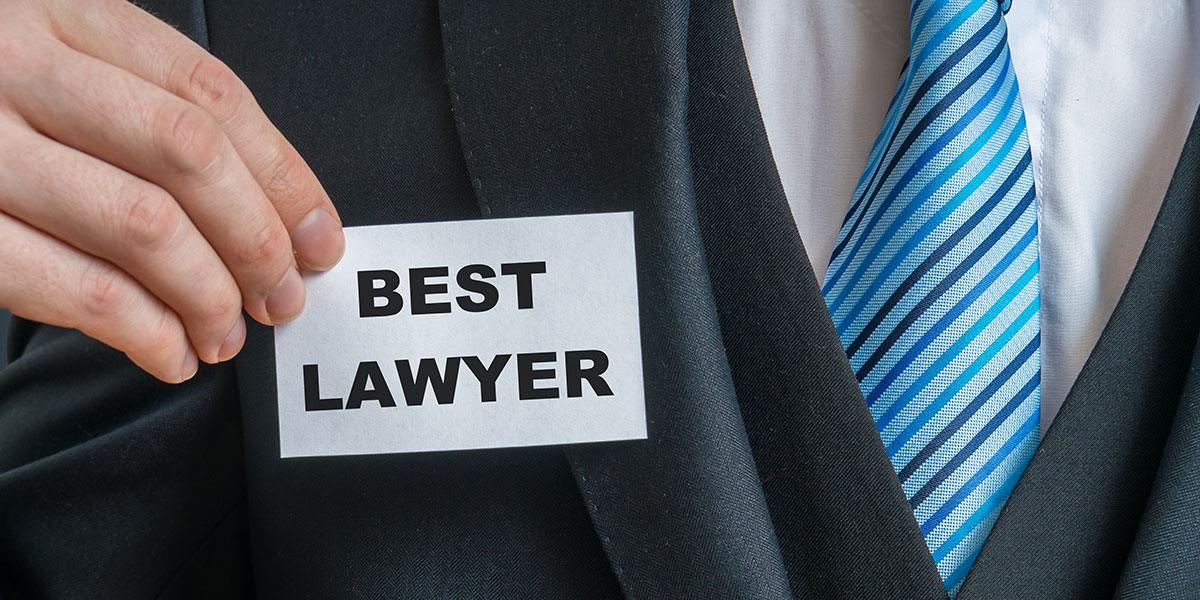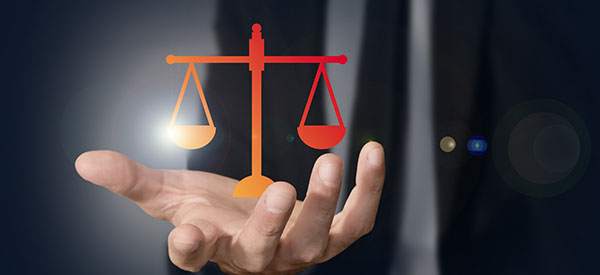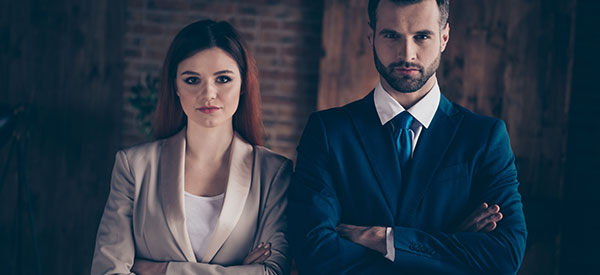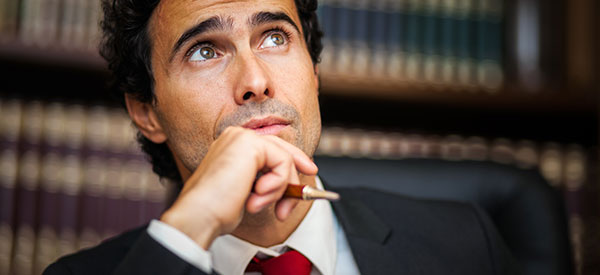Hiring a lawyer is often synonymous with a legal problem. Whether it is of significant importance or relates only to a minor legal problem, dealing with a lawyer is essential to ensure that the proceedings go smoothly. As the legal world is full of administrative pitfalls, delays, and refusals, asking an expert who knows the inner workings of the system will maximize your chances of obtaining a favorable verdict!

But what if you have never hired a lawyer and you have no idea where to start your research? You let Compare Lawyers present the merits of these legal experts. Gatineau has many of the best lawyers in the province and we will try to show you their worth!
The different fields of law practice
The legal profession, like many highly specialized professions, is divided into fields of practice. As each one also requires in-depth knowledge, lawyers generally limit their activities to only a few areas of the law. This division within the legal world means that lawyers, despite a similar formative background, practice divergent practices. See below the main spheres of Quebec law!
Insurance law: Knowing that insurance has largely replaced ordinary civil liability in Quebec, it is not surprising to learn that insurance law is a very active field of practice. Many lawyers work in insurance to represent the interests of both insurers and policyholders.
It can be a case revolving around the interpretation of an insurance policy, an unpaid indemnity or even fraud. If your insurance refuses to cover damage or injury that you believe is covered by your insurance policy, consult a lawyer without delay!
Health Care Law: The field of health is similar to law in that there are many specialties and very deep expertise. However, extensive training does not mean that the professional is safe from missteps. Indeed, prosecutions based on medical errors are an intrinsic part of Quebec’s civil liability.
Whether an operation went wrong or you were overlooked in getting the right advice, you potentially have recourse against the doctor who treated you. Your burden of proof will be heavy because proving a fault on the part of a doctor is not easy. With the help of a lawyer, you can put the odds on your side!
Bankruptcy Law: Lawyers, being specialists in tax law, are able to analyze your financial situation and guide you towards a solution to financial recovery tailored to your reality. By working with financial planners and advisers, bankruptcy lawyers will do their best to help you avoid insolvency.
When that is not possible, they will go over the possibilities such as a consumer proposal, a debt restructuring proposal, or when inevitable, bankruptcy. Don’t worry, bankruptcy lawyers have seen more than one poor financial situation and they will do everything they can to avoid resorting to personal or business bankruptcy!

Real estate law: The field of real estate law is one which includes several administrative players and which encompasses various fields of law. Indeed, lawyers working in real estate law are competent to deal with zoning disputes, commercial leases, financing, and major construction projects. They are particularly capable of representing the interests of clients (often developers) with municipalities that have significant power in matters of construction and real estate development.
In addition, when an important or potentially problematic transaction takes place, real estate lawyers are involved to ensure that everything goes smoothly. They are equally competent to deal with real estate litigation, regardless of the point of law at play!
Family/matrimonial law: Disputes in family and matrimonial law always happen with a high level of emotion and complexity. Since personal interests are always involved, it would be difficult to do otherwise. Family lawyers, however, know how to make the process less painful, whether it be divorce, adoption, custody, or access proceedings.
Protection of intellectual property: Protect what is your legal right! A field in turmoil with the advent of communication technology, intellectual property law makes it possible to protect non-tangible assets with, sometimes, high monetary value. In particular, Quebec law recognizes copyright, trademark, patent, industrial design, and topographies as intellectual property likely to be protected.
These rights are intended to protect the personal and monetary interests of artists, musicians, individuals, and even businesses. They are recognized by law and by case law, so do not hesitate to consult a lawyer specializing in intellectual property protection.
Learn more about out-of-court dispute resolution with your lawyer! Whatever the field involved in your legal problem, one constant will inevitably be found: the requirements and the complexity of a trial. Getting justice takes time and you have no guarantee that the verdict will be decided in your favor. By opting for an alternative resolution to private with negotiation, mediation, or even arbitration, you expedite the process in addition to finding a compromise more likely to satisfy everyone.
Why is a lawyer your indispensable legal ally?
When we know that representation by a lawyer is not a legal obligation and that more and more web platforms offering legal advice are made available to everyone, there is reason to wonder about the relevance of hiring a lawyer, isn’t it? Despite the growing quality of such free services, lawyers remain essential professionals in resolving all types of disputes!
Extensive legal knowledge: By requesting a lawyer, you hire an expert who is part of the Roll of the Bar of Quebec. This testifies to an unequaled professionalism but also to a ton of legal knowledge which one does not find elsewhere than with such an expert. The knowledge held by jurists in the various fields of law makes them truly essential allies for the resolution of your problem!
Rigorous training: The education received by lawyers is among the most recognized in the academic and professional world. Both at university level and that of the Bar, the requirements for success are very high. This means that a lawyer who has successfully completed all of his compulsory training is more than capable of handling your dispute.
Solid argument: Anyone who has ever dealt with a lawyer knows that these individuals have easy response and argumentation anchored in their DNA. By combining these personality traits and legal knowledge, you obtain a lawyer capable of debating your case before various authorities or capable of asserting your point with a contractual counterpart.
Concrete legal experience: Due to their compulsory bar training and the basic requirements of their profession, lawyers always have a level of concrete legal experience. Even when fresh out of the bar, lawyers are already able to handle important cases under the supervision of established lawyers. So you never have to fear the competence of your lawyer!
To find a lawyer with all these wonderful qualities, it is in Compare Lawyers that you must trust! We will find the lawyer you need in no time!
Accused of a crime? Don’t delay calling a lawyer!
You should never hesitate to call a lawyer, no matter what legal problem you are in. However, when a criminal charge threatens to fall on your head, there really is no time to waste with uncertainty. You need a lawyer without delay! Whether you are unaware, or have nothing to blame yourself for, you need a legal representative. Here’s what to expect if you find yourself caught in a criminal trial:

Arrest: A police officer will put you under arrest before taking you to the police station. The rights of the arrested person should always be read to him when the police make the arrest. If he is deemed to be a danger to the general population, he will be detained until his appearance in court.
Appearance: This stage is where the accused enters his plea. He will plead either guilty or not guilty, which will dictate whether or not a trial will take place. Before entering his argument, the accused has the right to see the evidence accumulated against him by the prosecution.
Interim release hearing: When pleading not guilty, the accused has the right to a hearing into provisional release. Since he is presumed innocent, there is no reason to deny him this right unless he is deemed dangerous. In the majority of cases, it is up to the prosecution to prove the necessity of the detention. When he has not discharged this burden, the accused will have to be released pending trial.
Preliminary inquiry: The preliminary inquiry stage is used to more precisely disclose the events alleged against the accused and to inform him of the evidence accumulated against him. It is at this stage that the judge decides whether the evidence accumulated by the crown is sufficient to justify the holding of a trial or if it does not meet the required threshold.
Trial: The prosecution’s representative will try to prove the accused’s guilt beyond a reasonable doubt by calling witnesses, introducing evidence, and trying to present the facts in such a way as to convince the judge or jury.
Sentencing: If the accused is found guilty by the judge, he will have to undergo sentencing representation during which his lawyers and those of the prosecution will present their recommendations on the appropriate prison time or possible alternative sentences. Once again, it will be up to the judge to decide!
How does a criminal lawyer defend you in Gatineau?
Anyone charged with a crime in Canada is presumed innocent until proven guilty. It is up to the Crown Attorney to prove the accused’s guilt beyond a reasonable doubt. What then is the role of the defense counsel in such circumstances? That of defending the fundamental rights of his client and of sowing doubt in the prosecution’s evidence.
Although the defense counsel is not entitled to lie in court and cannot authorize witnesses or clients to do the same under penalty of perjury, he can still vigorously attack the evidence of the prosecution. This will be done, inter alia, by questioning the integrity of the witnesses called, by questioning the quality of the evidence gathered and by invoking the violation of the rights of the accused under the Canadian Charter of Rights and Freedoms.
Does a criminal conviction also convict you in civil law? The answer is no. A criminal conviction does not automatically make you guilty in a civil trial of the same facts. However, such a conviction does have a civil impact if the judge of such a trial has to consider this criminal judgment as a legal fact.
This allows him to draw conclusions that will lead to a finding of guilt or vice versa depending on his assessment of the evidence. The reason for showing restraint in the criminal judgment and not automatically convicting is that more than one accused can plead guilty to avoid the costs of a criminal trial in exchange for a reduced sentence.
The right to a full and complete defense has been fundamental and enshrined in the Canadian constitution since time immemorial. This is true regardless of the nature of the alleged crimes.
To get the best defense against criminal charges, you need to find a lawyer who specializes in this area. To find the best criminal lawyers in Gatineau, trust Compare Lawyers by filling out the form on this page!
Who are the people involved in a criminal trial?
A criminal trial is an event which brings together several players, some charged with proving the guilt of the accused and others whose role is to sow doubt in the minds of the judge or jury. This is done by respecting the steps mentioned above on the conduct of a criminal trial. But what is the specific role of each of these stakeholders?

First, the judge is the one who presides over the hearing and ensures that the rule of law is respected in all matters relating to the taking of evidence and the hearing. He is the master of the courtroom and is responsible for ensuring the smooth conduct of the trial while respecting the rights of the accused.
However, when the trial takes place before a judge alone and not before a jury, the latter has a dual role since he is also responsible for deciding on the guilt of the accused beyond a reasonable doubt, considering the evidence before him. When the judge finds the accused guilty of the crime he is accused of, his role will also be to determine the applicable sentence.
When the trial takes place before a judge and a jury, the latter will be responsible for determining the accused’s guilt based on the rule of law and on the evidence submitted. Indeed, a jury’s verdict of guilt must be unanimous, but sentencing will always be in the hands of the judge.
As far as the Crown Attorney is concerned, the burden of proving the accused’s guilt is on his shoulders. Although the defense counsel does not have an evidentiary burden per se since the accused is presumed innocent until proven guilty, his task will, nonetheless, be to discredit Crown evidence and present arguments proving the innocence of his client.
As far as witnesses are concerned, their role is to report facts as they know so that the arguments presented by the Crown and the defense can be proven. Moreover, witnesses are not called to give their opinion on the facts, the accused, or anything else; they are there to report the facts.
Are you overwhelmed by the complex and intricate process of a criminal trial? The first thing to do if you are the subject of criminal charges is to contact a lawyer in Gatineau who specializes in criminal law through Compare Lawyers!
Will your criminal trial take place before a jury in Gatineau?
Another question to ask when presenting a criminal case in court is whether you will be tried solely by a judge or by a jury of your peers. The answer to this question depends on the type of crime or offense you are accused of! Only the most serious crimes will be brought before a judge and a jury, while lesser crimes will be brought before a judge alone.
First, with regard to a summary offense, it will always be brought before a judge alone because of the low level of seriousness of the act. Some summary offenses include shoplifting, disturbing the peace, or public nudity. Moreover, a summary offense does not require a complete procedure and does not require any preliminary inquiry.
Next comes the category of criminal acts which are much more serious than summary offenses. Among these acts we find murder, sexual crimes, assault, and others! However, even in criminal acts, a distinction is made between more serious and less serious acts in order to determine whether the presence of a jury will be necessary.
For example, a criminal act resulting in the destruction of property will take place before a judge and without a jury. However, criminal acts such as those listed above may take place in the presence of a jury. For certain crimes, the accused also has the choice of being tried by a jury or a judge alone, depending on his preferences.
Finally, there is also the mixed offense, that is to say an unlawful act which could as well qualify as a criminal act or a summary offense but the law leaves it to the Crown Attorney to decide the classification. Obviously, as this falls within a “gray area”, the trial will take place before a judge alone if the proceedings have to go to court.
Obviously, it is best to hire a good criminal lawyer before the proceedings go that far as your lawyer may be able to reduce the severity of the charges against you and even negotiate with the prosecution.
You’ve come to the right place because Compare Lawyers puts you in touch with criminal lawyers in just a few clicks!
Is a lawyer bound by professional secrecy?
Absolutely! Lawyers are required to respect a code of ethics subjecting them to various obligations, in addition to respecting the fundamental right to professional secrecy provided for in the Canadian Charter of Rights and Freedoms! Due to the sensitive and highly confidential nature of the conversations between lawyers and their clients, it is not so surprising to learn that the law places them under such requirements of discretion. But what kind of information is covered by this duty of professional secrecy?
- Information and instructions given on the mandate
- Communications between the client and the lawyer
- Legal opinions issued by the lawyer
- Research carried out for the client
- Testimonies and information on witnesses
- Reports given to the client on his case
- Other documents related to the settlement of the case
In all cases, for this information to be subject to professional secrecy, it must combine three cumulative characteristics. In particular, they must be lawful, must be an opinion on file in court, and the parties must agree on the confidential nature of the information exchanged.
When you are unsure of the extent of professional secrecy, ask your lawyer to be certain or contact the Barreau du Québec for more information. Don’t worry; prosecutions for breach of professional secrecy are very rare so you can have full confidence in your lawyer!
What services do lawyers offer for businesses?
Far from being limited to services for individuals, lawyers also offer their expertise to business managers and various managers to ensure the legal interests of their company. As they have their own legal personality, they are able to assert their rights in their own name. For this reason, many lawyers specialize in business and corporate law to offer services such as:

Drafting of contracts: Writing a simple contract between two people for the sale of any property is not very complex, we agree on that. However, when two large companies want to enter into a business partnership with buyout, first refusal, shotgun, or termination clauses, the level of difficulty goes up a notch. This is why business lawyers intend to draft very elaborate contracts for companies so that the obligations and penalties for non-performance are clarified.
Due diligence: When buying a business, a division of a company, or entering a large transaction, due diligence is an inevitable precaution. They serve to protect the interests of the parties by checking the financial statements of both parties, checking that the thing promised does exist, and that the performance of the obligation is, indeed, possible.
Incorporation: When a company wishes to incorporate, it protects its members and directors by creating a separate entity with its own legal personality. Several advantages come with incorporation, but it still requires in-depth legal advice on the company structure to set up. Lawyers are, therefore, available to provide advice and assistance in this process.
Mergers and acquisitions: A term specific to commercial law, mergers and acquisitions are carried out when two companies want to pool their assets under one roof by the merger of two entities or by the purchase of one of the companies by the other. This is done when the best financial interests of both parties point to that path as the optimal business plan. There is hardly a more complex maneuver in business law as a whole than mergers and acquisitions so it is best to do business with a lawyer experienced in the field.
Succession of the company: In the life of any administrator, there comes a time when the management of a company must give way to another adventure. To move on to other things without ruining the efforts of a lifetime, you have to think about planning your business succession properly. Business lawyers know how to prepare for such a transfer of powers.
First meeting with your lawyer: Prepare yourself well!
Preparing adequately for your initial meeting with a lawyer will greatly facilitate your task and make your experience in the legal world less demanding. Similar to the role of the lawyer and to convince a judge or other party that the law is correct, you need to be able to build your legal case using facts. Since it is your situation that is at stake, it is your responsibility to communicate your situation as clearly as possible. Follow these tips to prepare yourself!
Prepare the facts. Write down the relevant facts in a document, remember the details as accurately as possible, and get ready to tell your story to your lawyer. Expect to answer, sometimes, pointed questions about details of your story that don’t seem relevant at first glance because it is these details that can make all the difference.
Ask questions. Once you’ve told your story and got your lawyer’s first impressions of the litigation, ask as many questions as you need to feel confident
Gather relevant documentation. If your dispute is of a real estate nature, bring with you the certificate of location, the permits, the zoning documents, and all other material evidence that can help your lawyer. Even if he may ask you to do so, taking the initiative saves time.
Do personal research. Arriving well-informed at your first meeting will demonstrate an undeniable seriousness, in addition to putting you in a good position to ask relevant questions to your lawyer. By having at least a vague idea of the applicable laws and the functioning of the area of law in question, you will not start from the bottom of the scale.
Compare the different lawyers. Take the time to find the lawyer with whom you share a principle and with whom you have professional affinities. After all, you will spend months collaborating with him; the least you can do is to feel comfortable working alongside him.
Compare Lawyers is here to help you find the best lawyers in Gatineau!
Whatever your legal problem, there are lawyers in Gatineau available to help you resolve them with a snap of your fingers! They practice their profession in several fields of Quebec law and their experience makes them essential allies.

If you are searching for a lawyer, you’ve come to the right place! Compare Lawyers will help you compare the different lawyers in the Gatineau area so that you only hire the best!
Contact us today to receive 3 free and no-obligation quotes!**






